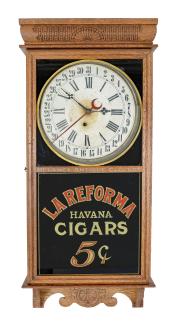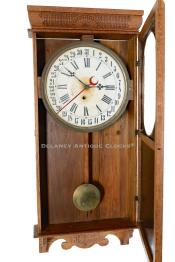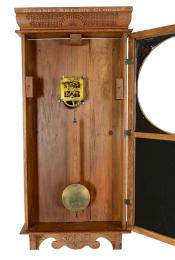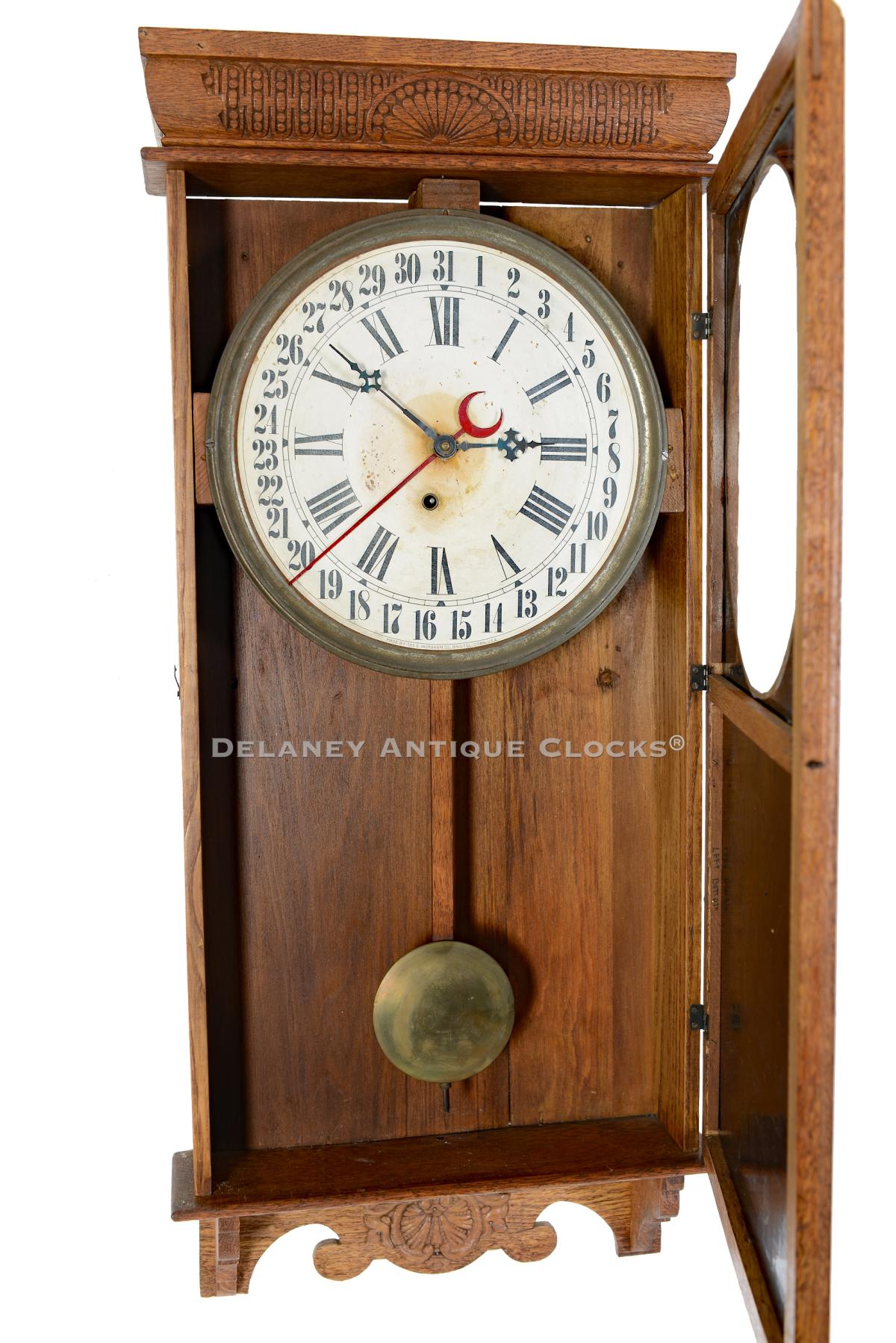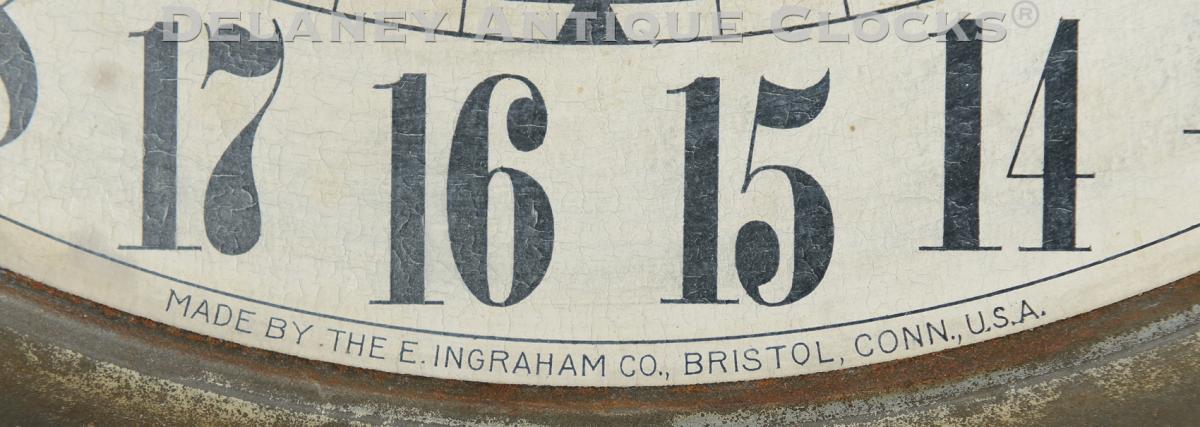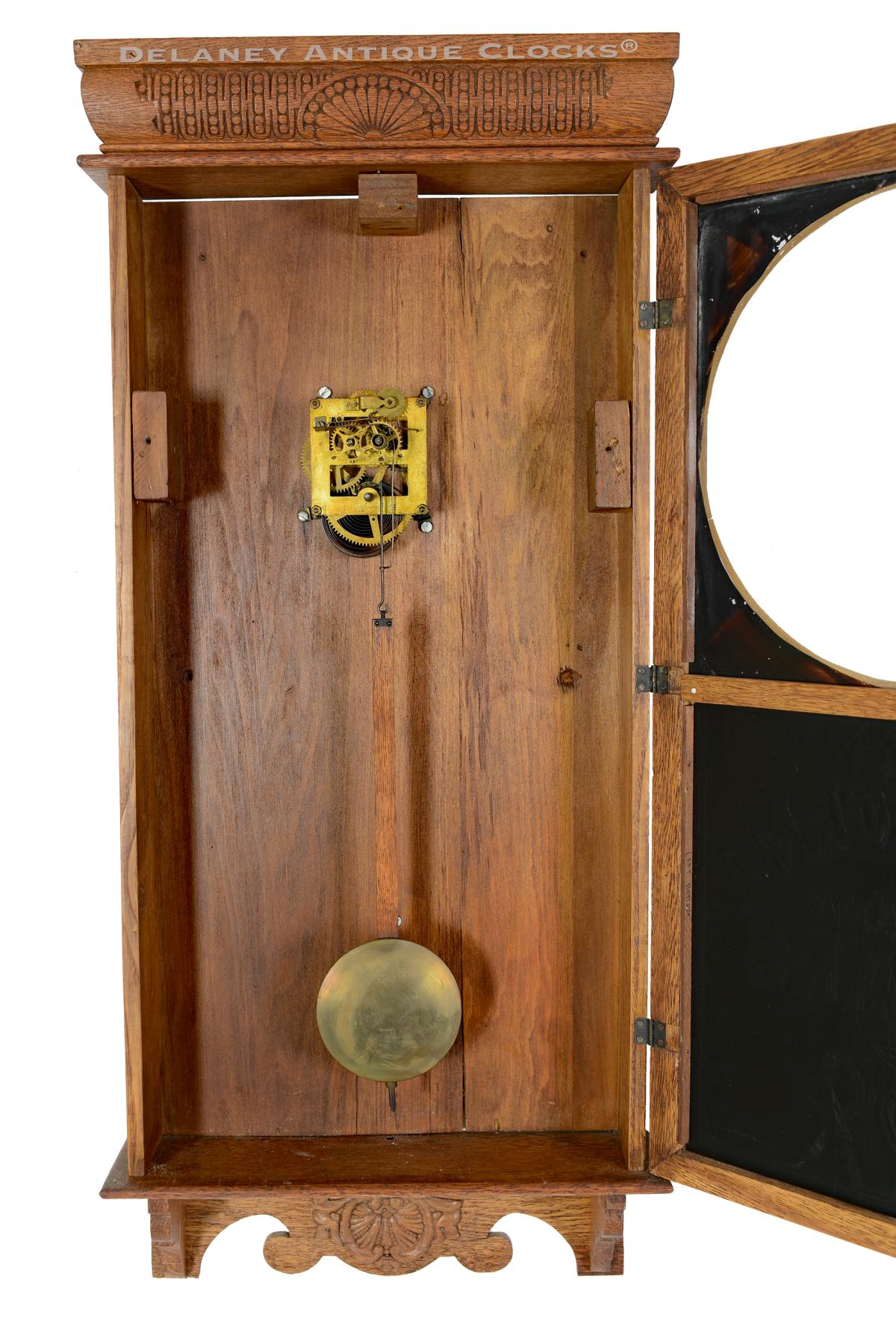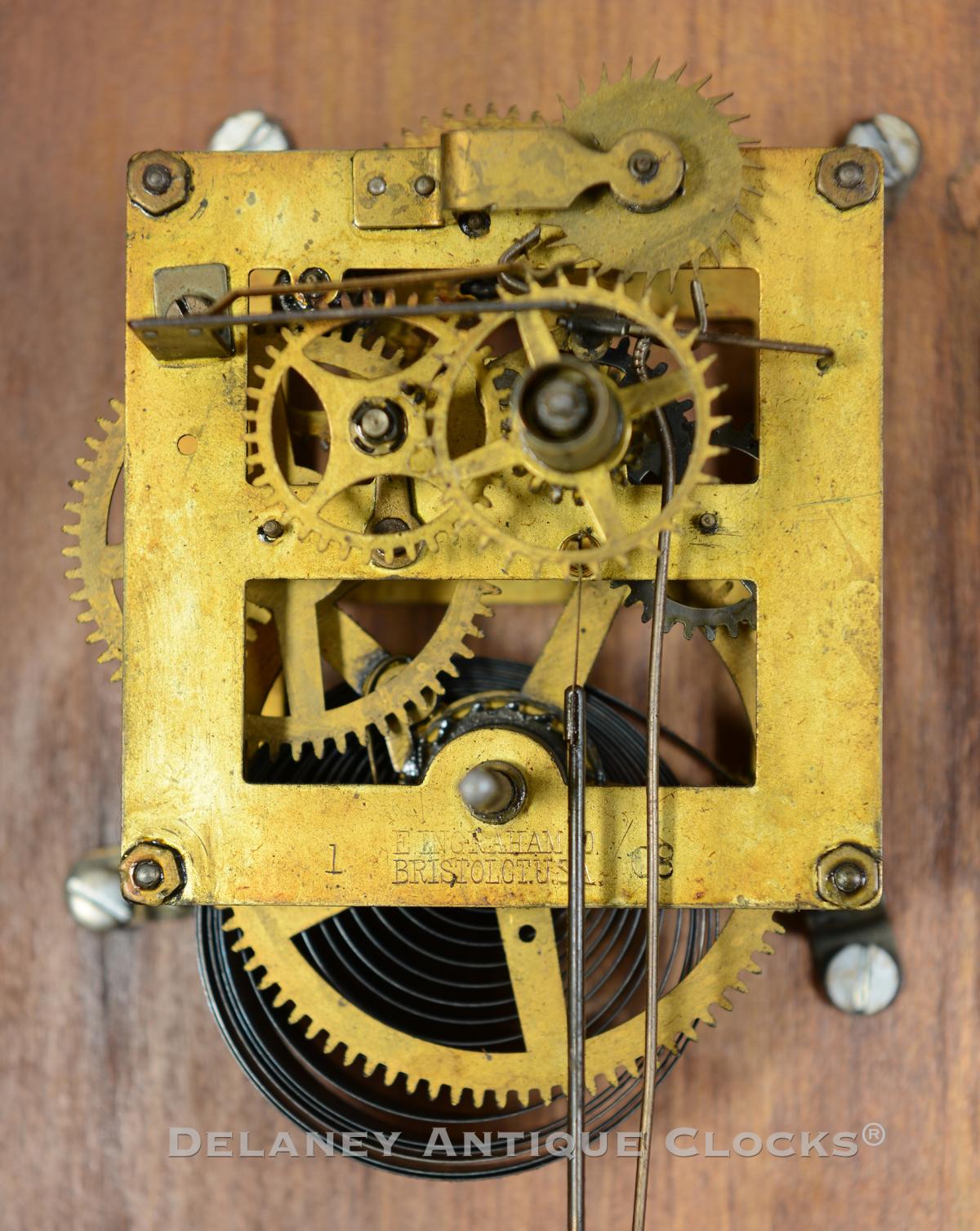E. Ingraham & CO. Bristol Connecticut. The “WESTERN UNION” calendar clock, a unique piece featuring “LA REFORMA / HAVANA / CIGARS / 5cents” advertising, a testament to the rich history of cigar production. 223242A.
This “Box Regulator” was made by E. Ingraham & CO. Bristol, Connecticut. This model is listed in their 1907 catalog as one of the “WESTERN UNION .” The case is constructed in solid oak and retains an older finish. The decorative designs are pressed into the wood under tremendous pressure. This model was initially offered in four movement configurations. The time-only example was listed for $6.60. With the strike option included, this model was priced at $7.60. The example that has the calendar option was $7.60. The model with all the bells and whistles, time, strike, and calendar was $8.00. All four setups featured an 8-day spring wound movement. The example offered here is the time and calendar option.
The spring-driven movement is constructed in brass and is designed to run 8 days on a full wind. The front plate of this movement is die-stamped by the manufacturer. The paper dial measures 12 inches across and is applied to a zinc pan. The dial is original to the clock. The Maker’s name is printed at the bottom of the dial. The hours are presented in a Roman-style numeral format. The calendar date is in Arabic form. The calendar date is pointed out by the red hand.
Both tablets are painted in black with gold trim. The lower tablet is paint-decorated from the back with the advertising for “LA REFORMA / HAVANA / CIGARS / 5 cents.” This graphic is in excellent condition.
This wall clock case measures approximately 39 inches long, 18.5 inches wide, and 5 inches deep.
Inventory number 223242A.
The Cubans have a long history of making premium cigars. Naturally, the combination of excellent tobacco and a long heritage in rolling cigars put their product at the pinnacle in the marketplace. Before leaving the factory, every cigar is checked to see if it is well made, properly rolled, and free from flaws. It has been estimated that producing a single Cuban cigar takes over 100 steps, hence their high price point.
Elias Ingraham was born in Marlborough, Connecticut, on October 1, 1805. He worked as a cabinetmaking apprentice for five years in Glastonbury. In 1825, he purchased his freedom and began working as a journeyman for Daniel Dewy of Hartford. In 1828, Solomon Hinman convinced him to move to Bristol and to make clock cases for George Mitchell. It is here that Ingraham designed and constructed the “Transitional” shelf clock form. Ingraham soon moves on and works for several other clock and furniture ventures. After numerous ventures, he formed the Elias Ingraham & Company in 1857 and was granted the first two patents in case design. The first was for the “Arch Column case, and the second was for the door design found in this example, having two circular doors separated by decorative rosettes. This design became extremely popular, and its influence finds its why in some of Ingraham’s competitor’s models. In 1860, the firm’s name changed to E. Ingraham & Company, reflecting a partnership with his son Edward. Elias died at his summer home on Martha’s Vineyard in August 1885. The business continued in various forms.

